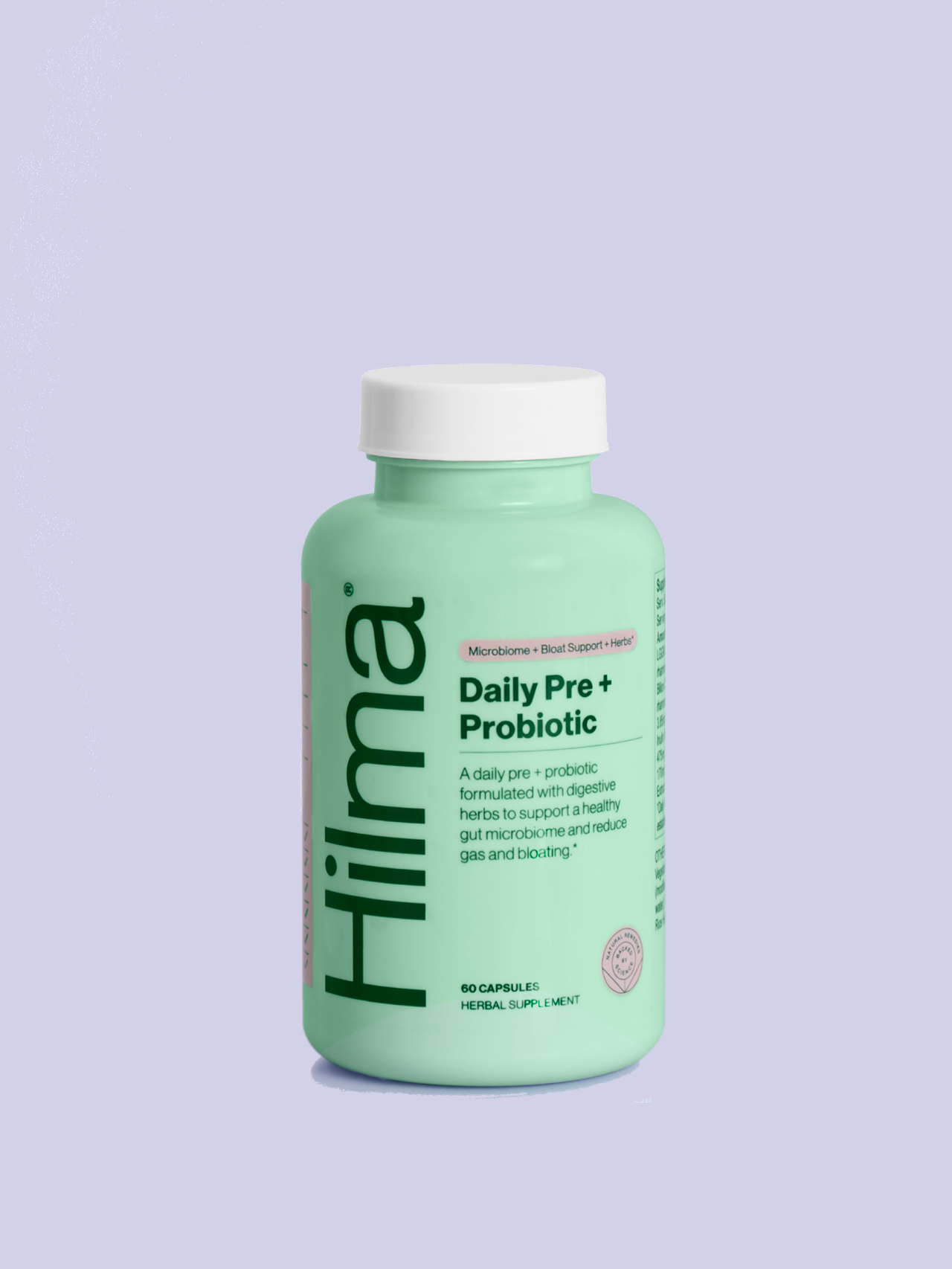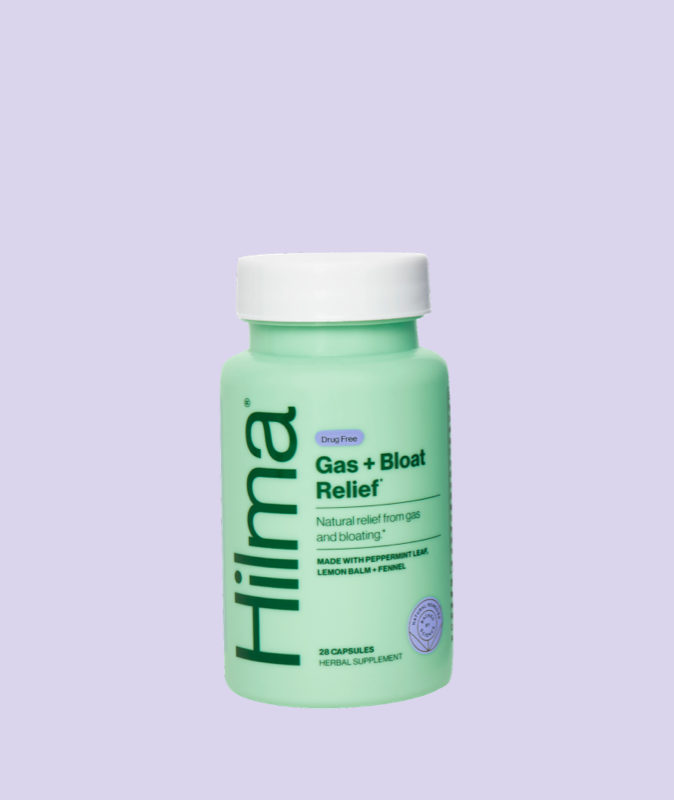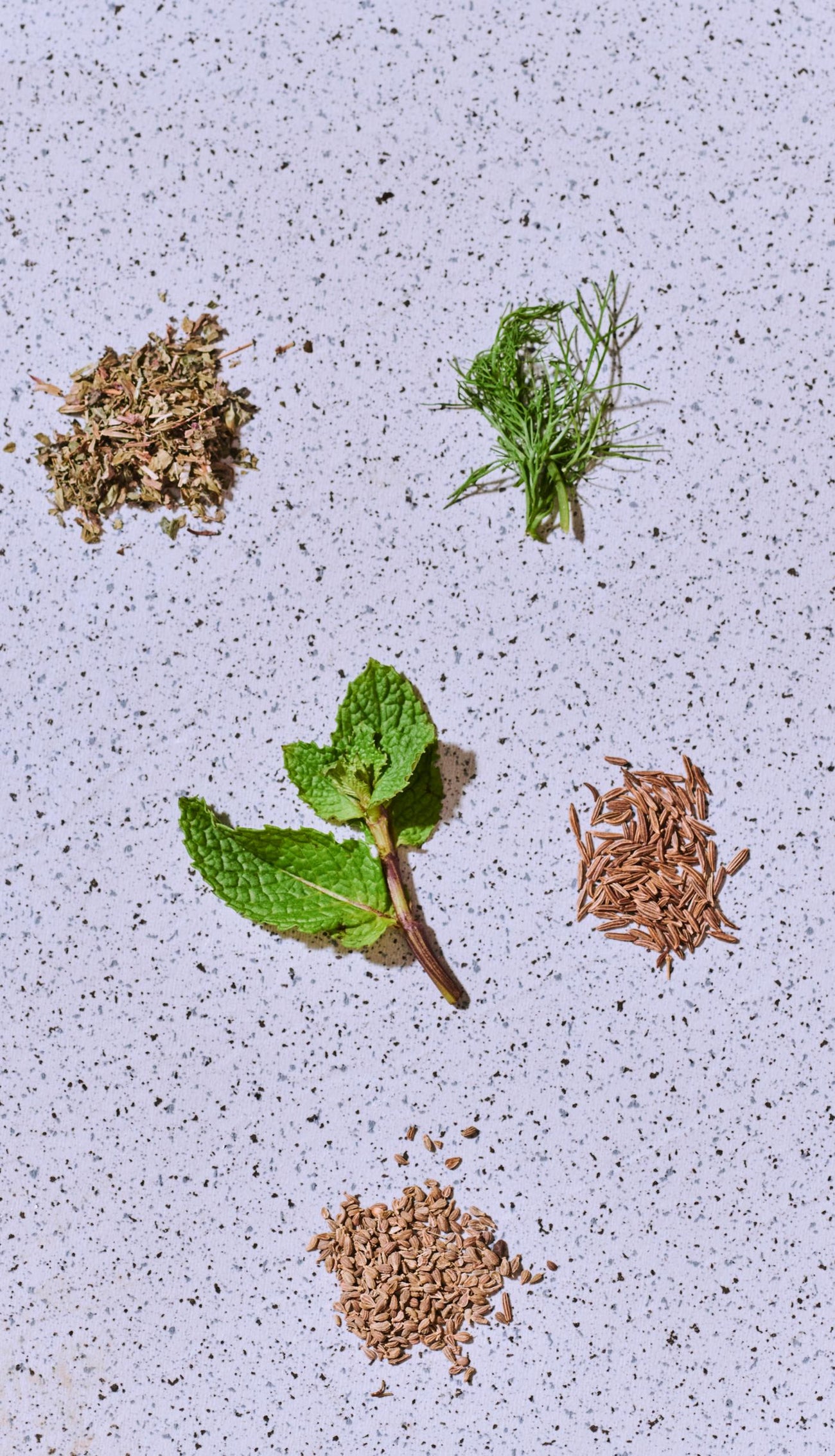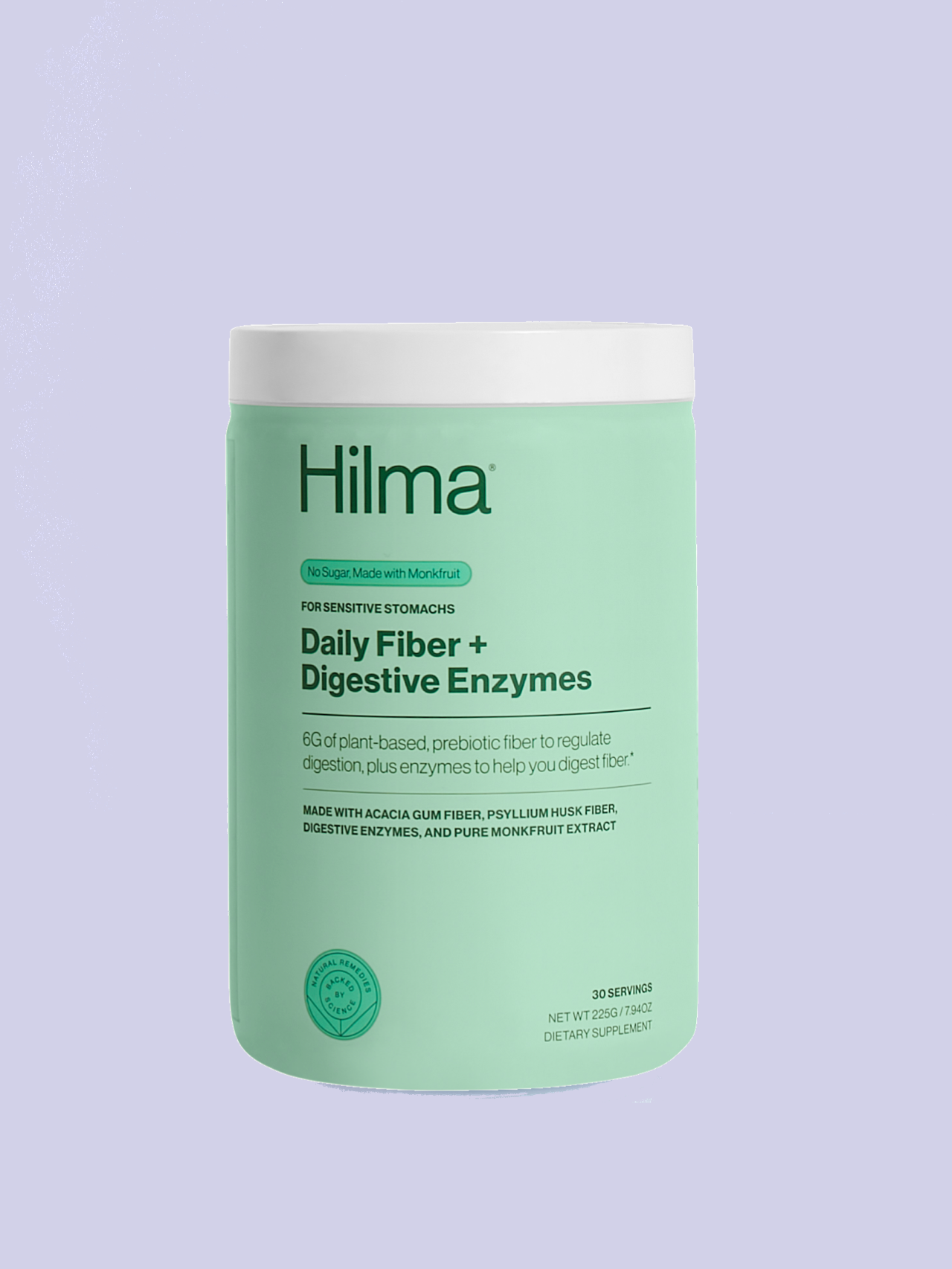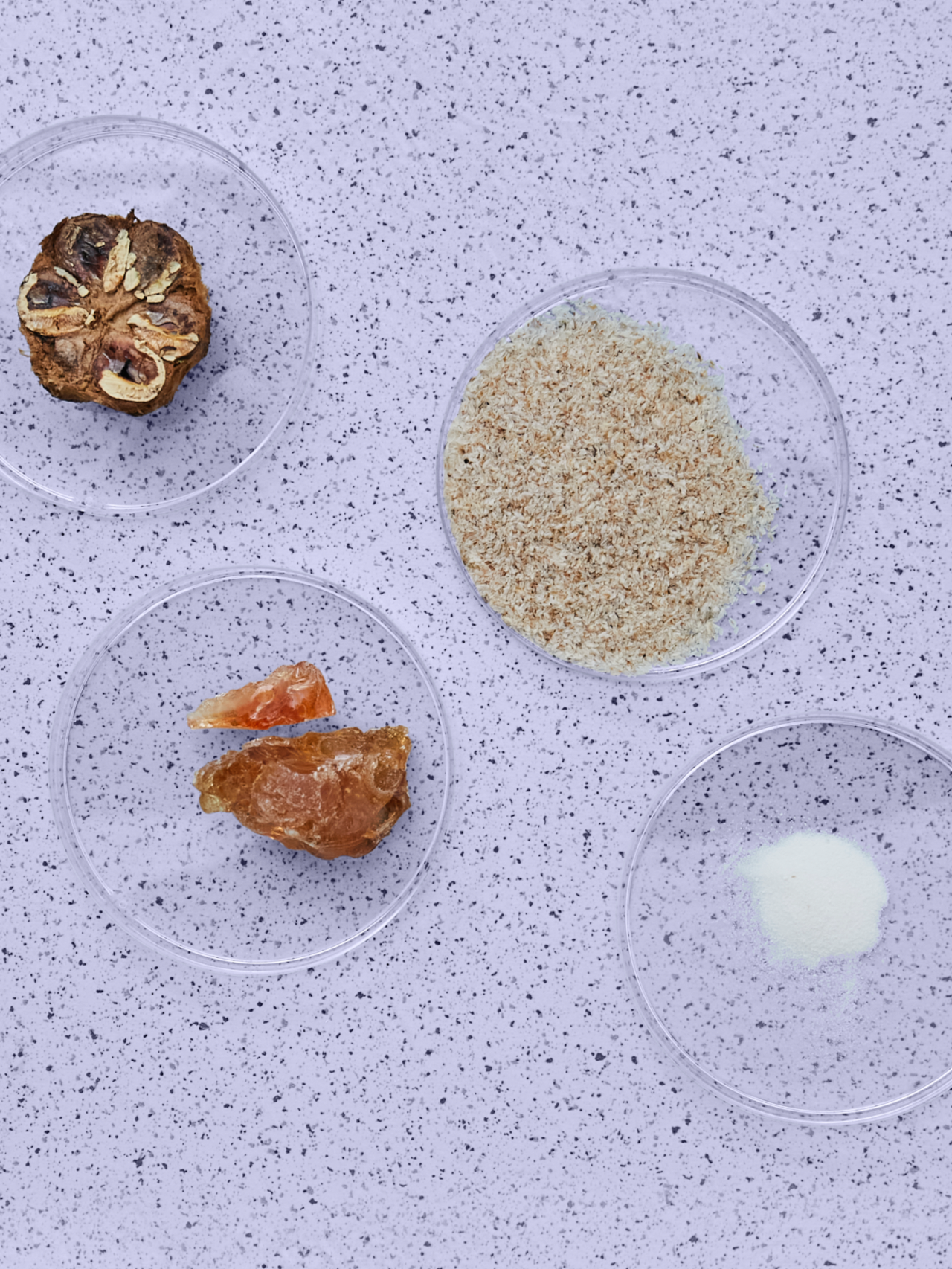What are Prebiotics?
Simply put, prebiotics are food for our good gut bacteria! The gut is filled with beneficial bacteria to break down the foods that we consume, support our immune system, and produce metabolites that our body also uses as fuel. You could not survive without this bacteria in your gut! In order for the gut to thrive, these gut bacteria require fuel in the form of prebiotics. To technically be classified as a prebiotic, a compound 1) needs to be resistant to the acid in your stomach and not be absorbed in the gastrointestinal tract, 2) needs to be broken down (fermented) by intestinal bacteria, and 3) can affect the growth or behavior of your body’s bacteria in a manner that improves host health.
Prebiotics vs. Probiotics
A probiotic consists of beneficial bacteria that live in our gut, while a prebiotic acts as fuel for those good gut bacteria. Probiotics and prebiotics work together to help the gut function effectively, helping the good bacteria in our guts to thrive while crowding out bad bacteria.
Where Do Prebiotics Come From?
Prebiotics are found in over 35,000 plant species. The main prebiotics include inulin, fructo-oligosacchrides (FOD) and galacto-oligosaccharides (GOS). Excellent sources of prebiotics include apricots, dates, asparagus, garlic, almonds, rye, and even dandelion and chamomile tea. Goji berries, a key ingredient in Hilma’s Stomach Reset, are also a source of prebiotics that are shown to support Bifidobacteroum and Lactobaccillus, two beneficial bacteria species in the human gut.
A healthy diet includes a variety of prebiotics. Prebiotic-rich foods include resistant starches like garlic and almonds, which are basically indigestible carbohydrates. While most starches are digested and absorbed as glucose, resistant starches are not digested in the small intestine and act as prebiotics in the large intestine to feed the good bacteria in the gut. There are many ways to incorporate resistant starches into your diet, but a few of our favorite resistant starches include:
-
Cooked and cooled sweet potatoes
-
Recipe idea: Potato salad with vinaigrette
-
-
Cooked and cooled rice
-
Recipe idea: Rice added into a kale salad
-
-
Green bananas
-
Recipe idea: Sliced bananas added on top of oatmeal
-
-
White beans and lentils
- Recipe idea: Mixed bean salad
-
Overnight oats
-
Recipe: Oats mixed with almond milk and almond butter and left in the fridge overnight
-
Short-Chain Fatty Acids and Gut Integrity
During the breakdown process, gut bacteria produce short-chain fatty acids (SCFAs), like butyrate. These SCFAs serve as fuel for the cells that line and strengthen the barrier of the intestine. You want a strong barrier between your intestines and your bloodstream because you only want so many things that you ingest to go directly into your blood. And when unintended compounds are able to cross the barrier, diarrhea and a host of other symptoms related to food sensitivities can occur. If you have ever heard of ‘Leaky Gut’ that is quite literally, a ‘leaky’ gut lining. Furthermore, a healthy butyrate level is thought to protect against a number of health issues, including insulin resistance (seen in diabetes) - possibly by regulating the body’s inflammatory response. Additionally, animal and human studies have revealed that prebiotics can decrease the population of harmful bacteria in the human gut. For example, mannose, a prebiotic found in cranberries, can attach itself to pathogenic Salmonella. This adhesion promotes the removal of Salmonella through your urinary tract.
How Prebiotics Impact Gut Microbial Balance
In addition to their direct benefits for the gut lining, prebiotics help maintain a healthy balance of bacteria in the gut. The gut microbiome is home to trillions of bacteria, some beneficial and some harmful. The balance between these microbes is essential for overall health. A disrupted gut microbiome—due to poor diet, stress, antibiotic use, or other factors—can lead to dysbiosis, a condition in which harmful bacteria outnumber beneficial ones.
Studies have shown that prebiotics can help restore a balanced microbiome. For example, certain prebiotics such as mannose, found in cranberries, can attach themselves to harmful bacteria like Salmonella. This process helps prevent the pathogenic bacteria from adhering to the intestinal walls, making it easier for the body to flush them out. In fact, prebiotics can help reduce the abundance of harmful bacteria and support the growth of beneficial species such as Bifidobacteria and Lactobacilli, which are associated with better digestive health and immunity.
How Prebiotics Resist Stress
It’s important to recognize the role that stress can play in gut health. Chronic stress is known to negatively affect the gut microbiome, leading to an imbalance that can contribute to issues such as bloating, constipation, or diarrhea. Prebiotics help support the gut’s ability to recover from stress by fostering a healthy bacterial environment.
Additionally, prebiotics have been shown to have a positive impact on mood and mental health. Research has suggested that a healthy gut microbiome plays a significant role in the gut-brain axis, the communication between the gut and the brain. This connection influences mood, behavior, and cognitive function. Prebiotics, by promoting a healthy gut microbiome, may also help reduce anxiety and improve overall mental well-being.
Benefits of Prebiotics
When you are seeking a gut supporting supplement, one that includes prebiotics is extra valuable. Part of gut health involves the health of your gut bacteria. The addition of prebiotics supports gut health through its role as food for the gut bacteria and the products, such as fuel for the gut lining, that it may generate. In Stomach Reset, the addition of prebiotics through goji berries helps support your body when it may be under stress. This stress could look like a long flight, a time change, a hangover, or unwelcome diarrhea.
The ideal way to include more prebiotics in your life is through whole foods. However, when optimizing gut health and/or seeking additional gut support, a supplement that includes prebiotics can offer strong support. In Hilma’s Stomach Reset, the addition of a prebiotic ensures that the support is covering a variety of aspects of your gut. The goji berries support the gut bacteria, the amla fruit supports the stomach lining, and the marine algae soothes the stomach.
What about a Pre Probiotic?
Another option is a pre probiotic. A pre probiotic helps provide those beneficial bacteria and the food for them directly into the gut. The inclusion of prebiotics helps ensure the probiotic bacteria stick around the gut. If there is insufficient food, the new bacteria will die and you will have taken the probiotic for nothing. To technically be classified as a prebiotic, a compound 1) needs to be resistant to the acid in your stomach and not be absorbed in the gastrointestinal tract, 2) needs to be broken down (fermented) by intestinal bacteria, and 3) can affect the growth or behavior of your body’s bacteria in a manner that improves host health.
This synergy or prebiotics and probiotics is especially important in individuals who may have recently taken antibiotics, as these medications often disrupt the balance of bacteria in the gut. A pre-probiotic supplement can aid in restoring balance more efficiently.
Similarly, for those whose diets lack sufficient fiber or diversity, a pre-probiotic can help fill the gap and promote microbial diversity, which is a cornerstone of good gut health
Is it good to take prebiotics every day?
Yes! Daily prebiotics are part of a healthy diet. Regular daily intake of prebiotics ensures a continuous supply of fuel for beneficial gut bacteria, promoting optimal gut function and overall well-being.
You can get prebiotics through whole foods (like garlic, onions, bananas, and asparagus), or if necessary, through supplements. It's important to ensure a diverse diet rich in different types of prebiotics to support a wide variety of beneficial bacteria.
However, it's always good to start gradually if you're new to prebiotics or if you have a sensitive gut, as a sudden increase in fiber intake can sometimes cause bloating or discomfort. If you have any specific health concerns, consulting a healthcare provider before making significant dietary changes is a good idea.
Prebiotics are an essential component of a healthy diet and are particularly beneficial for gut health. When experiencing digestive discomfort or seeking to improve your overall gut function, incorporating more prebiotics can support your microbiome, enhance gut barrier function, and improve your body’s response to stress. If you struggle to get enough prebiotics through food alone, consider supplements that provide targeted prebiotic support.
Next time you are experiencing a bit of gut disruption, consider adding prebiotics as part of your plan for recovery. As part of a balanced diet and healthy lifestyle, prebiotics help ensure that your gut remains well-nourished and ready to support overall health.
Sources
- https://www.ncbi.nlm.nih.gov/pmc/articles/PMC6463098/#!po=0.413223
- https://isappscience.org/publications/dietary-prebiotics-current-status-and-new-definition/
- https://www.sciencedirect.com/science/article/pii/S0753332219352138
- https://pubmed.ncbi.nlm.nih.gov/31076401/
- https://www.ncbi.nlm.nih.gov/pmc/articles/PMC4275385/
- https://mbio.asm.org/content/10/1/e02566-18
Note: This information is for educational purposes only, and should not be taken as medical advice. Please consult your physician before treating any disorder.

